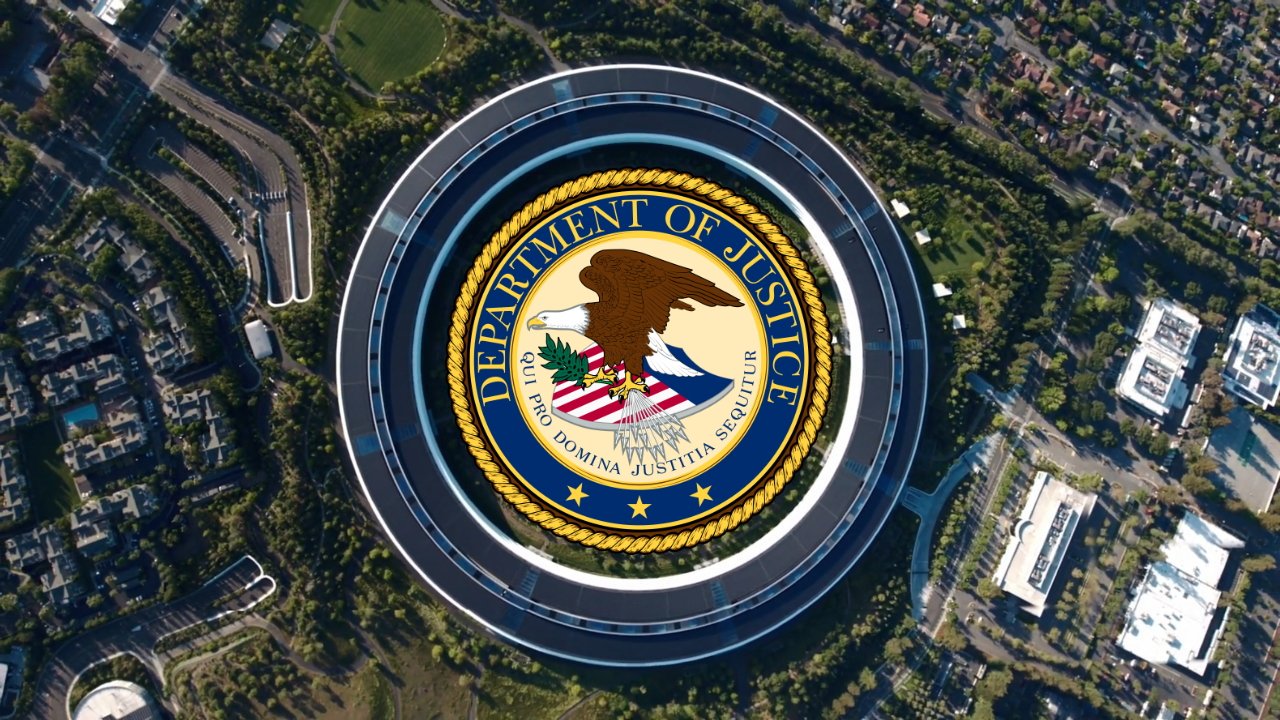The US Department of Justice has enlisted more help in its omnibus and controversial antitrust suit against Apple, with the count now up to 20 co-plaintiffs.
The four states added in an amended complaint filed on June 11 are Indiana, Massachusetts, Nevada, and Washington. The amended filing contains no additional information other than the additional states jumping on.
"We welcome the States of Indiana, Massachusetts, Nevada and Washington, who join our existing coalition to restore competition in the smartphone markets that Apple has monopolized," said Assistant Attorney General Jonathan Kanter of the Justice Department's Antitrust Division in a statement. "We look forward to litigating this important case alongside our state partners to deliver the benefits of competition to consumers, app developers, accessory makers and the American public."
After years of speculation and rumors, an official announcement from the Department of Justice on March 21 confirmed that it is suing Apple on antitrust grounds. The United States versus Apple lawsuit addresses multiple issues, spanning nearly every aspect of how Apple runs its business.
The Department of Justice says that Apple has violated section two of the Sherman antitrust act, in five ways.
- Restrictions on the App Store applied to "super apps," and in doing so, limiting the growth of apps for third parties
- Cloud streaming services are limited by Apple, specifically game-streaming services
- Excluding cross-platform messaging apps, forcing people to continue to buy iPhones to maintain messaging
- Diminishing the functionality of non-Apple smartwatches, by limiting access to software and hardware features
- Limiting digital wallets, and preventing use of the near-field communications to third-parties
In a press conference about the event, US Attorney General Merrick Garland complained about 30% fees on the App Store, degraded experience for third-party accessories, and leans heavily on Messages as part of the suit. Based on the statement, it's not clear if the US understands that RCS is coming to Messages, comprehends the limitations of the SMS standard that Messages utilizes to connect with devices that are not iPhones, or knows that the fee structure on the App Store is not a full 30% across the board — and is free for small developers.
According to Apple, the DOJ has brought an antitrust case as a Section 2 Sherman Act claim, and that this can only "move past the pleadings" if it is shown that three specific allegations are valid. The DOJ, says Apple, has to show that the company has:
- Monopoly power in a relevant market
- Has performed anticompetitive conduct
- It has had anticompetitive effects
Apple then says that the DOJ has accused it of restrictions that it has then failed to show have had anticompetitive effects. Apple "faces fierce competition from well-established rivals" and does not have "the market share necessary to establish or infer market power."
Consequently, Apple is asking the court to dismiss the case. But it's also going further in accusing the DOJ of attempting to change antitrust law.
If Apple's motion to dismiss is not upheld, the DOJ's case will continue and proceed to a full hearing. The dates for this are again down to the court.
A ruling on the motion to dismiss is expected by the end of July. Regardless of that ruling, with appeals expected after the trial regardless of outcome from either side, it's unlikely that the case will be resolved for years.
United States of America vs Apple by Mike Wuerthele on Scribd
 Mike Wuerthele
Mike Wuerthele







-m.jpg)






 Marko Zivkovic
Marko Zivkovic
 Christine McKee
Christine McKee
 Andrew Orr
Andrew Orr
 Andrew O'Hara
Andrew O'Hara
 William Gallagher
William Gallagher


 Bon Adamson
Bon Adamson


-m.jpg)



14 Comments
Again as others have written, this suit seems to have been written at the behest of Apple’s competitors and not to protect consumers against the things that truly bother us- online criminality such as fake malware apps, cyber crime, excessive tracking, pop-up ads & surveys etc etc. Apple’s closed garden approach is a consumer choice and for those who don’t want it…there is the android world and admittedly that has its advantage in terms of customization and maybe AI ability.
This suit is analogous to saying Taylor Swift has a monopoly on concerts.
At least they finally are taking on Ticketmaster. There are real monopolies in the world.
Claiming that Apple has monopoly power in a specific price segment of the smartphone market rather than in the overall market shows how flimsy the charges are. It also bears repeating that Section 2 of the Sherman Antitrust Act requires proving harm to the market rather than harm to competitors. You can't just say "Microsoft wanted to have a cloud gaming app in the App Store and Apple wouldn't let them do it". You would have to show that the overall cloud gaming market was harmed which would likely be very difficult to do considering Microsoft never treated iOS as the priority market for their game streaming service. They prioritized launching it on a number of other platforms before turning their attention to the iPhone.
And where are the antitrust suits against Adobe. That is a truly abusive monopoly. But no, Apple gets bigger headlines when people go for reelection
overwhelming consensus agrees the DoJ has a very weak case. Just a complete waste of taxpayer money as a result of the DOJ etc needing to show that they are at least doing something.
No doubt the DOJ have a nice corrupt judge to do this case, just like in the Trump trial....the charges should be dismissed by any neutral judge, however I guarantee they won't be by the appointed judge